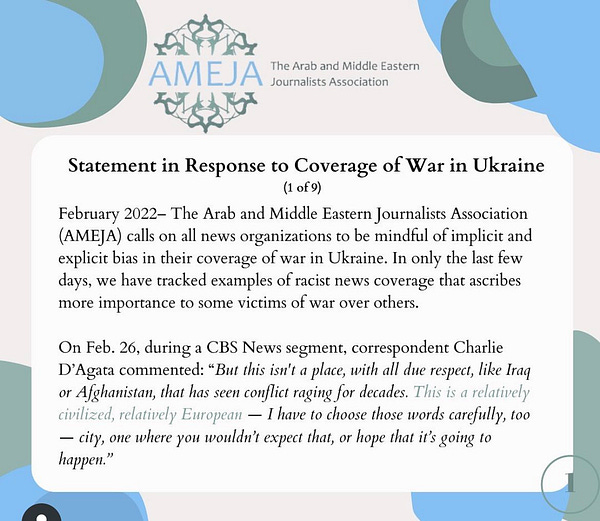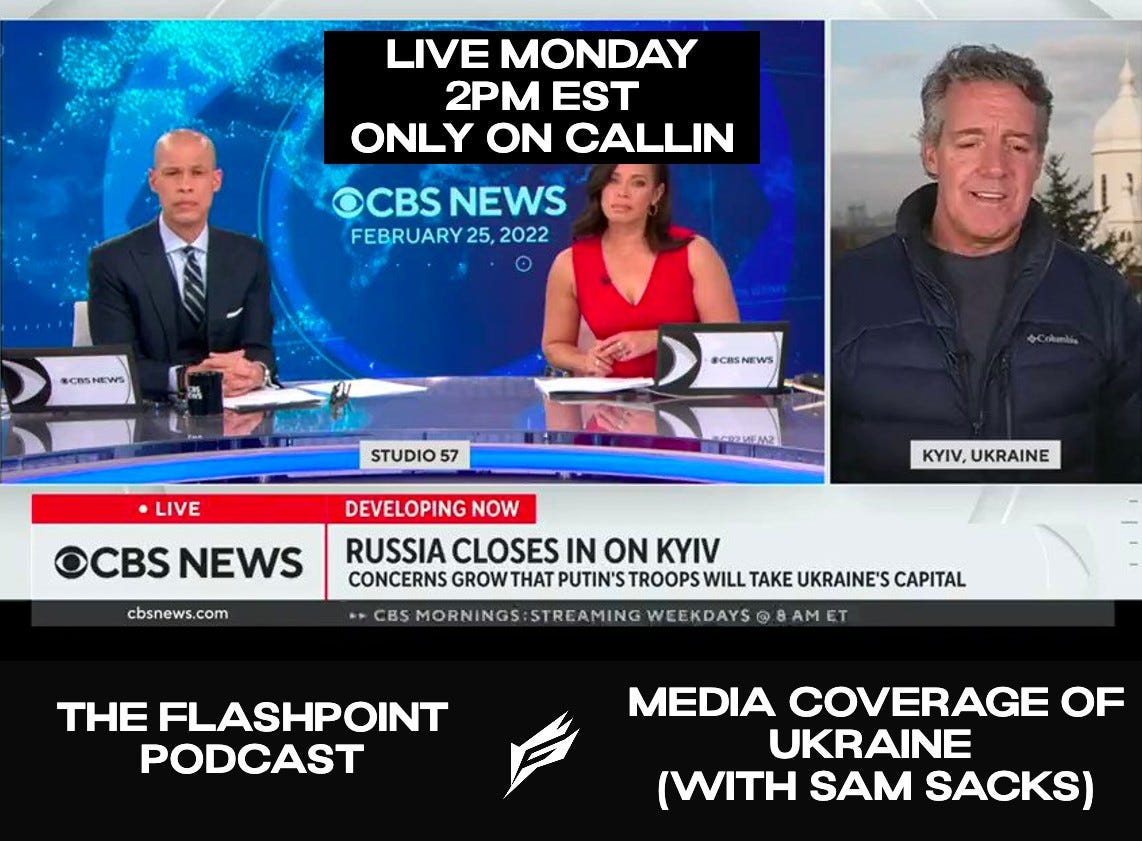"Relatively Civilized, Relatively European": Media Bias Infects Coverage of Ukraine War
Western outlets are showing us whose struggles against oppression are considered worthy and whose are not
It’s been less than a week since Russia invaded Ukraine in a poorly-thought out war of conquest which may have devastating consequences for the world.
As Ukrainians prepare to fight against the overwhelmingly more powerful Russian military, Western media has portrayed their resistance to the invasion in glowing terms.
President Volodymyr Zelensky is being lauded as a hero and a new world leader. The Ukrainian people are presented as brave frontline fighters from all walks of life, inspired to pick up arms in defense of their land.
Zelensky’s decision to stay in Ukraine and lead the country while being a main target of the Russian forces is undeniably brave. The Ukrainian people, fighting in their own self-defense, are similarly courageous.
But the way the media has been describing their fight and the conflict is telling audiences more than just the story of the people of Ukraine’s fight against invasion. The coverage betrays deep-seated bias in whose struggles against oppression are considered worthy and whose are not; and, in some cases, showing just how insidious the ideas of “us and them” and “civilization” really are.
“Palestinians are called terrorists for throwing rocks during occupation while Ukrainians are celebrated and shown on TV making Molotov cocktails,” tweeted Nashwa Khan.

The most extreme example came on Saturday, when CBS reporter Charlie D’Agata compared Ukraine to other conflict spots around the world, differentiating the Eastern European country from the implicitly “savage” lands of the Global South.
“This isn’t a place, with all due respect, like Iraq or Afghanistan, that has seen conflict raging for decades,” D’Agata said. “This is a relatively civilized, relatively European—I have to choose those words carefully, too—city, where you wouldn’t expect that or hope that it’s going to happen.”
D’Agata later apologized for his choice of words, but he was hardly alone.
French television commentators on two occasions said the quiet part loud.
“We’re not talking here about Syrians fleeing the bombing of the Syrian regime backed by Putin, we’re talking about Europeans leaving in cars that look like ours to save their lives,” one said.
"We are in the 21st century, we are in a European city, and we have cruise missile fire as if we were in Iraq or Afghanistan,” said another.
Britain’s ITV was more of the same.

In response to the relentless racism and bias, The Arab and Middle Eastern Journalists Association issued a statement calling on newsrooms “to be mindful of implicit and explicit bias in Ukraine reporting and condemns examples of racist coverage that ascribes more importance to some victims of war over others.”





To discuss the media bias on Ukraine and the broader coverage of the conflict, I’m joined on my Callin show this afternoon by Sam Sacks, host of MeansTV’s Means Morning News, and Bryce Greene, a writer for Fairness and Accuracy In Reporting.
We go live at 2pm—join us on the app or on desktop at the link.
If you would like to support my work, please consider a paid subscription
Find me on Twitter and Facebook
Email me at eoinhiggins@gmail.com





